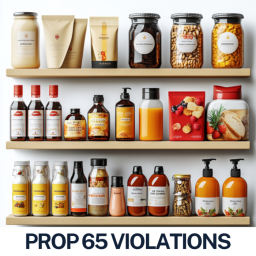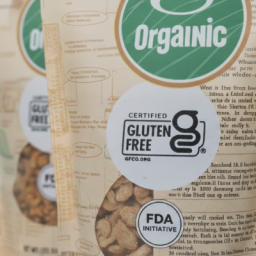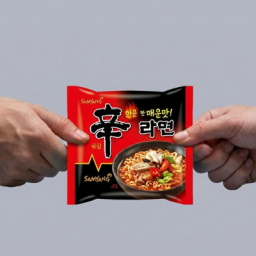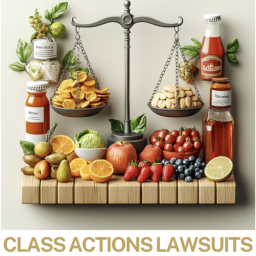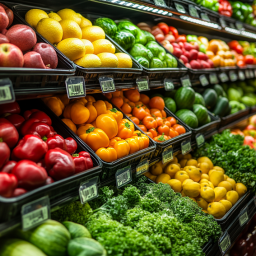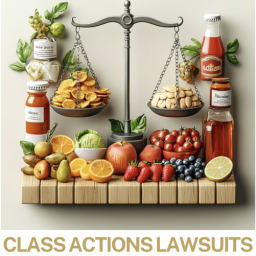
Why did the USDA issue a warning about FreshRealm meals?
The USDA’s Food Safety and Inspection Service (FSIS) issued a public health alert for ready-to-eat (RTE) meals produced by FreshRealm LLC after concerns that the meals may be contaminated with Listeria monocytogenes. The warning affects specific Blue Apron and Marley Spoon branded meals containing riced cauliflower that tested positive for Listeria contamination.
Although no illnesses have been reported, the USDA warns consumers to check their refrigerators and avoid consuming affected meals due to serious health risks—particularly for pregnant individuals, seniors, and those with weakened immune systems.
Which FreshRealm products are affected?
The USDA identified the following meals as potentially contaminated:
- DISH by Blue Apron Cheesy Chicken Mac with Vegetables
– 13.05 oz trays, lot codes 25240 and 25247, establishment number P-3081
- BALANCE by Marley Spoon BBQ Sauce Beef Meatballs with Cheesy Cauliflower
– 10.5 oz trays, lot code 25255, establishment number EST. 47718
The meals were shipped nationwide through meal subscription services. While they are no longer being sold, consumers may still have them in home refrigerators or freezers.
What is Listeria and why is it so dangerous?
Listeria monocytogenes is a bacterium that can cause listeriosis, a serious foodborne infection. While healthy adults may experience mild symptoms, high-risk groups can face miscarriage, stillbirth, or life-threatening infections.
Symptoms may appear days or weeks after exposure and include:
- Fever
- Muscle aches
- Headache
- Nausea or diarrhea
- Confusion or loss of balance
The danger lies in the fact that Listeria can grow in refrigerated environments, making prepackaged or ready-to-eat foods particularly vulnerable.
How did this contamination occur?
According to FSIS, the contamination originated from riced cauliflower ingredients that tested positive for Listeria during FreshRealm’s internal quality testing. The ingredient may have been distributed to multiple meal products under different brand labels.
This is not FreshRealm’s first issue involving Listeria. In mid-2025, the company recalled its Chicken Fettuccine Alfredo meals after they were linked to a multistate outbreak that caused 17 illnesses and three deaths.
These repeated incidents highlight the persistent challenge of supply chain safety and cross-brand contamination in co-manufactured food production, where a single contaminated ingredient can impact several well-known meal services.
What should consumers do right now?
If you have any of the meals listed above:
- Do not eat them.
Discard or return them to the place of purchase.
- Clean your refrigerator and surfaces that came into contact with the products.
- Check your freezer, as subscription meals may be stored for future use.
- Monitor for symptoms and contact your healthcare provider if illness develops after eating a suspected product.
The CDC recommends extra caution for pregnant people, older adults, and those with compromised immune systems.
Could more products be affected?
Yes, and this is a critical point many articles miss. Because FreshRealm manufactures meals for several brands, including Blue Apron, Marley Spoon, and HelloFresh, shared ingredients could expand the risk beyond the two identified products.
While the USDA has not yet expanded the alert, FSIS investigations are ongoing. Co-manufacturers and private-label brands should review ingredient sourcing, sanitation logs, and supplier testing records immediately to identify potential exposure risks.
What does this mean for food manufacturers and distributors?
This warning underscores that regulatory compliance is not optional—it’s essential for business continuity. Under the Food Safety Modernization Act (FSMA), RTE food producers must implement robust preventive controls and supplier verification programs.
To stay compliant and minimize risk, companies should:
- Conduct routine environmental monitoring for pathogens like Listeria.
- Verify supplier safety certifications and lot traceability.
- Maintain updated Hazard Analysis and Critical Control Points (HACCP) plans.
- Report contamination findings promptly to the FSIS or FDA.
At Juris Law Group, we regularly advise clients on FSMA compliance, recalls, and regulatory communications to help them manage events like these while protecting their brand.
What are the possible legal consequences for FreshRealm?
If Listeria monocytogenes contamination is confirmed and tied to illnesses, FreshRealm could face substantial legal and financial repercussions. Potential outcomes include:
- Regulatory enforcement actions: The USDA or FDA could impose corrective orders, product seizures, or even criminal penalties for negligence under FSMA if preventive controls were insufficient.
- Civil liability: Consumers who suffer illness or injury may pursue product liability or negligence lawsuits, potentially including class actions.
- Contractual disputes: Meal kit brands relying on FreshRealm could seek indemnification for recall costs, lost sales, or reputational damage.
- Reputational harm: Repeated contamination events can erode brand partnerships and consumer trust, impacting future contracts with national retailers or subscription platforms.
The fact that FreshRealm has faced Listeria-related incidents twice in one year may heighten regulatory scrutiny, as agencies assess whether systemic failures in their quality controls or supplier oversight contributed to recurring contamination.
How should companies handle a food safety crisis like this?
A strong crisis response strategy is as important as preventive measures. Companies facing contamination events should act swiftly and transparently.
Key steps include:
- Immediate containment: Halt production and isolate affected lots while initiating traceability reviews.
- Notify regulators early: Proactive communication with FSIS or FDA can reduce enforcement severity and demonstrate good faith compliance.
- Launch a coordinated recall or public alert: Clear, fact-based consumer messaging helps limit exposure and liability.
- Engage legal counsel and crisis communications teams: Early involvement ensures compliance with reporting requirements and consistent, brand-safe messaging.
- Conduct post-incident audits: Review sanitation protocols, supplier records, and preventive controls to prevent recurrence.
At Juris Law Group, we assist clients not only during recalls but also in developing crisis management frameworks, including training, communication templates, and recall simulations to ensure rapid, compliant action under pressure.
How do Listeria recalls differ from other recalls?
Unlike typical bacterial recalls (such as Salmonella or E. coli), Listeria monocytogenes presents unique operational and legal challenges:
- Long incubation period: Makes source tracing and containment more difficult.
- High-risk population impact: Increases liability and public health concern.
- Cold-chain persistence: Allows Listeria to survive even in refrigerated facilities.
Even minor lapses in sanitation can escalate into major public health warnings or enforcement actions—making robust preventive systems indispensable.
What can food businesses learn from the FreshRealm case?
This case illustrates how co-manufacturing and shared supplier relationships can complicate recall responsibility. When multiple brands use a single production facility, contamination in one ingredient can ripple through an entire product ecosystem.
It raises essential questions for every food manufacturer:
- Who assumes liability when contamination arises from a shared supplier?
- How quickly can brands trace affected ingredients across multiple SKUs?
- Are there indemnity or recall cost-sharing clauses in contracts?
Addressing these questions before an incident occurs can significantly reduce legal exposure and help companies respond decisively if contamination is detected.
How Juris Law Group can help
Our attorneys advise food and beverage companies, manufacturers, and importers on compliance with FSIS and FDA regulations. Whether your business is facing a recall, supplier audit, or label review, Juris Law Group provides strategic legal guidance to minimize risk and protect your brand.
If your company produces or distributes ready-to-eat or co-manufactured products, now is the time to strengthen your food safety plan, recall procedures, and supplier verification protocols.
FAQs
Is this an official recall or a warning?
This is currently a public health alert, not a full recall. The products are no longer being sold, but FSIS warns consumers who may still have them stored at home.
Has anyone gotten sick from these meals?
No illnesses have been reported as of this week. The alert remains precautionary.
How can companies prevent Listeria contamination?
By maintaining strict sanitation programs, supplier oversight, and comprehensive preventive controls under FSMA.
Can Listeria be killed by cooking?
Yes. Heating food to an internal temperature of 165°F (74°C) eliminates Listeria. The concern arises when ready-to-eat meals are consumed without reheating.
What are the legal risks for food companies in such cases?
Potential exposure includes FDA/USDA enforcement, civil litigation, and brand damage. Comprehensive documentation and proactive compliance are the strongest defenses.
Key Takeaway
The USDA’s alert on FreshRealm meals highlights a growing challenge in the U.S. food industry: Listeria contamination can infiltrate complex, multi-brand supply chains and survive under refrigeration.
For consumers, vigilance means checking your meal kits and monitoring health alerts.
For food manufacturers, this is a reminder to strengthen FSMA compliance, supplier oversight, and crisis response systems—before contamination reaches the public.
At Juris Law Group, our team helps food businesses manage recalls, regulatory investigations, and preventive compliance programs to safeguard both consumers and corporate reputation.



